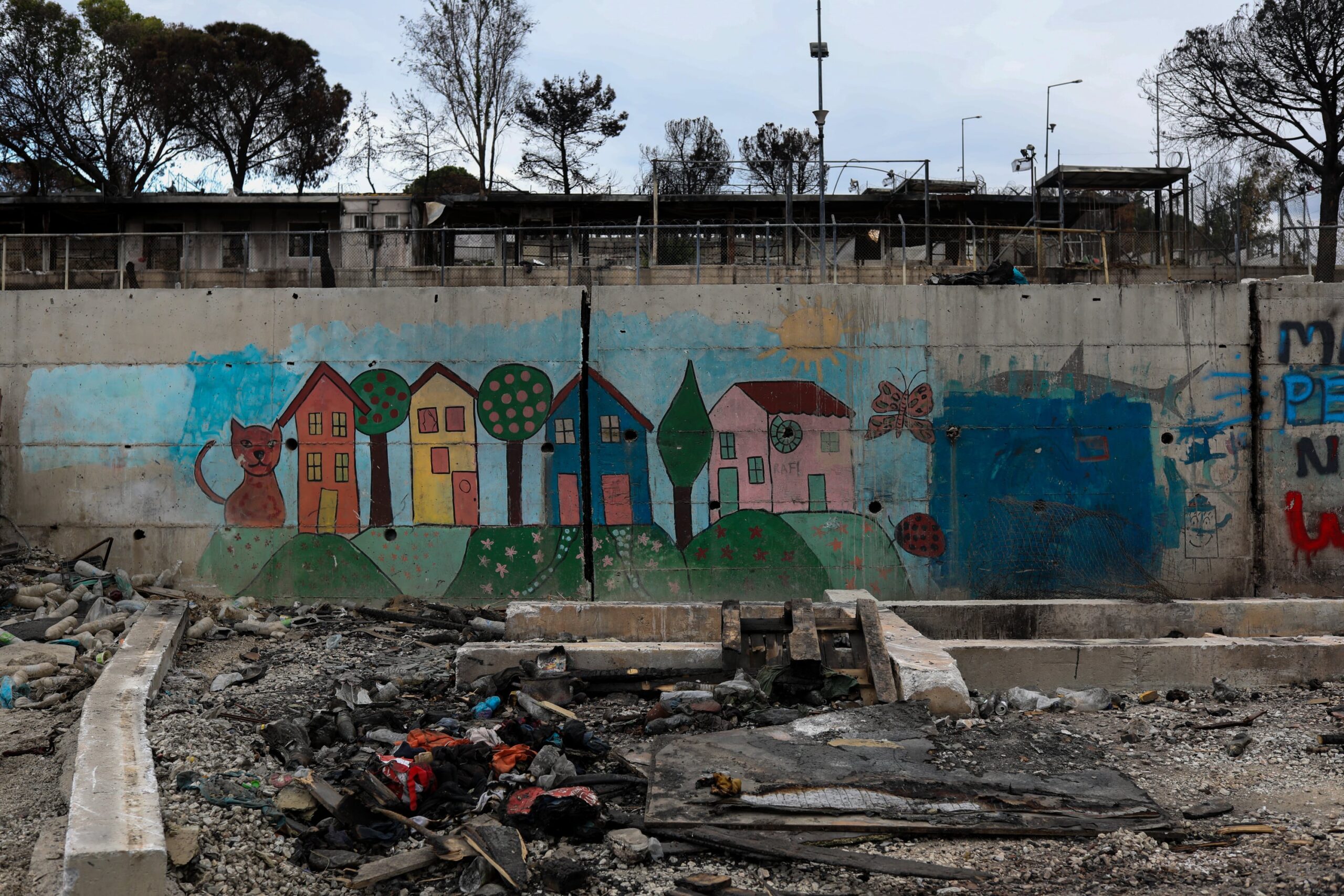Human traces in Moria, three months after the fire
A photo essay by Elias Marcou.

A photo essay by Elias Marcou.
On the night of September 8, the Moria Reception and Identification Center (RIC) on Lesvos completely burned down, leaving almost 11,000 asylum seekers who resided there, on the streets.

Three months after the incident, the photographer Elias Marcou returns to the former camp and captures snapshots of the activities that are evolving there and the transformation that the landscape is undergoing: the area inside the burned RIC is being cleared out by a contractor, while in an unofficial capacity, groups of Roma have taken on part of this clean-up job, collecting wires from inside the structure.
Asylum seekers return to collect aluminum scrap and take it to the metal factory, earning just enough money to buy cigarettes. In the olive grove, which used to encircle the original structure, locals arrive with their trucks to gather the leftover branches, tree trunks and roots of the olive trees.




The landscape, captured by Marcou’s lens, reveals fragments from the daily lives of the thousands of people who passed through this land – their traces buried under the ashes.






During the five years of the RIC’s operation, a dense complex of makeshift tents and shacks had formed around the perimeter of the original structure and outwards, towards the olive grove that extended to the surrounding slopes.
Today, most of the olive grove has been leveled and bears almost no resemblance to the fact that just a short time ago, (in an area which had an estimated capacity of maximum 3,000 people), up to 20,000 people were living there in conditions of extreme overcrowding – people who sought refuge in Europe.



Before you go, can you chip in?

Quality journalism is not of no cost. If you think what we do is important, please consider donating and becoming a reader who makes our work possible.